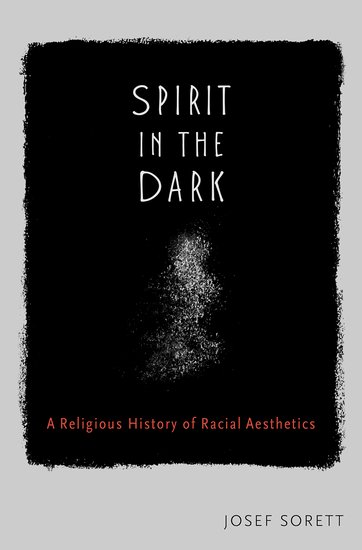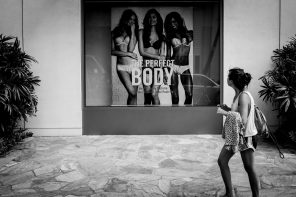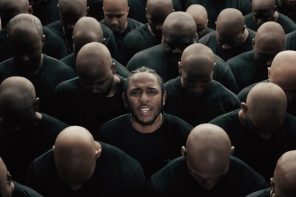The first book from Columbia University’s Josef Sorett examines the intersecting religious and secular roots of African American literary and cultural movements of the 20th century.
What inspired you to write Spirit in the Dark?
I found my earliest inspiration for this book while I was pursuing my Master of Divinity degree at Boston University and working at a church in Boston. During this time, I was spending as much time at poetry readings and spoken word performances as I was at the church and in the classroom. At the time, consuming literature—both on the page and performed on stage—was for me a source of respite and renewal from the rigors of graduate school and the rhythms of church life. By the time I entered the Ph.D. program a few years later, I found myself wanting a deeper historical understanding of the relationship between poets and preachers, and what I had witnessed in the present taking places in churches and salons.

Spirit in the Dark: A Religious History of Racial Aesthetics
Josef Sorett
Oxford University Press
September 2016
What’s the most important take-home message for readers?
While we more often than not learn about religion and literature in different classrooms, and we find books about these topics on different shelves in bookstores and libraries, religion and literature are best understood as part of a shared historical narrative. When I was regularly traveling from churches to poetry readings, I saw many of the same faces—in the audiences and congregations, as well as on stage and in pulpits. I heard many of the same questions raised, concerns voiced, and subjects broached in these two different spaces, sites that are often marked as distinctly sacred and secular. While I wouldn’t go so far as to conflate preaching and poetry, the sanctuary and the literary salon, there is in fact a longstanding relationship between these two kinds of social spaces and cultural performances. They are anything but unrelated.
Is there anything you had to leave out?
I don’t know if I would say that there were things I had to leave out, but there is, of course, a good deal of material I was working with that did not end up in Spirit in the Dark. In fact, what I originally imagined as one project ended up growing into two separate books that are connected by, if nothing else, an overlapping set of questions in my head. So, rather than leave things out, I have just about finished a second book that should be out before the end of 2018. This book, The Holy Holy Black: The Ironies of an African American Secular, could also be understood as both a prequel and a sequel to Spirit in the Dark. Where book one placed a primacy on mapping the complexity and diversity of religious ideas apparent in black literature, book two places a greater emphasis on the power and persistence of Afro-Protestantism.
What are some of the biggest misconceptions about your topic?
The meta-question that inspired Spirit in the Dark was a desire to understand the importance of debates around secularism for interpreting African American culture. One misconception I’m hoping to trouble is the idea that modern black literature is, by default, secular. At the same time, I don’t want to reinforce another misconception: namely that African Americans are all, by disposition, naturally religious, or more religious than the general population. There is no singular sacred/secular line that African Americans either embrace or resist. As is the case with all human beings, black folks have and continued to mark the boundaries between the religious and the secular, as well as to blur the presumed lines between the two, with different motivations, to different ends, and in different ways on any given day of the week.
Did you have a specific audience in mind when writing?
I wrote Spirit in the Dark both for scholars of American religion and for scholars of African American literature, as these are two of the academic fields in which I was trained. However, given the broader interest in black writers and literary movements (i.e. the Harlem Renaissance, the Black Arts movement), as well as in African American religion, I hope that the book finds a general academic audience (and perhaps even a small popular audience) of folks who are interested in religion, race and the arts in American history.
Are you hoping to just inform readers? Entertain them? Piss them off?
Definitely to inform. If I don’t piss anyone off, I do hope that the book will at least frustrate readers in the sense that some of the stories don’t conform to our expectations or assumptions about black religious practices, or black writers.
What alternative title would you give the book?
I was very fortunate to receive a good deal of helpful feedback when my book went through the review process, and I hope those reviewers see their advice reflected in the final project. One reviewer recommended that I use “That Spirit Is Black” (taking a cue from James Stewart, an artist associated with the black aesthetic of the 1960s) as the title. While I ended up borrowing “Spirit in the Dark” from Aretha, I think “That Spirit Is Black” would have worked just as well, and I did at least use Stewart’s phrase as the title for chapter six.
How do you feel about the cover?
I’m very proud to say that the artwork for the cover was a collaboration between Oxford’s design team and my wife, who used charcoal on paper to make the image onto which [Oxford University Press] placed the book’s title.
Is there a book out there you wish you had written? Which one? Why?
I just finished writing a review of The Fire This Time, edited by Jesmyn Ward, for the website Public Books. This is a bad answer because Ward’s anthology is comprised by contributions from 19 writers. Reading the book, I learned, laughed and almost cried. It also provided me with language to sort through something that I am thinking about all of the time but have not written much about publicly; namely, parenting. Several are grappling with the joys and anxieties of raising black children in a moment where we’ve witnessed so many black children killed on camera. I especially appreciated the essays in this volume that lingered on this topic.





